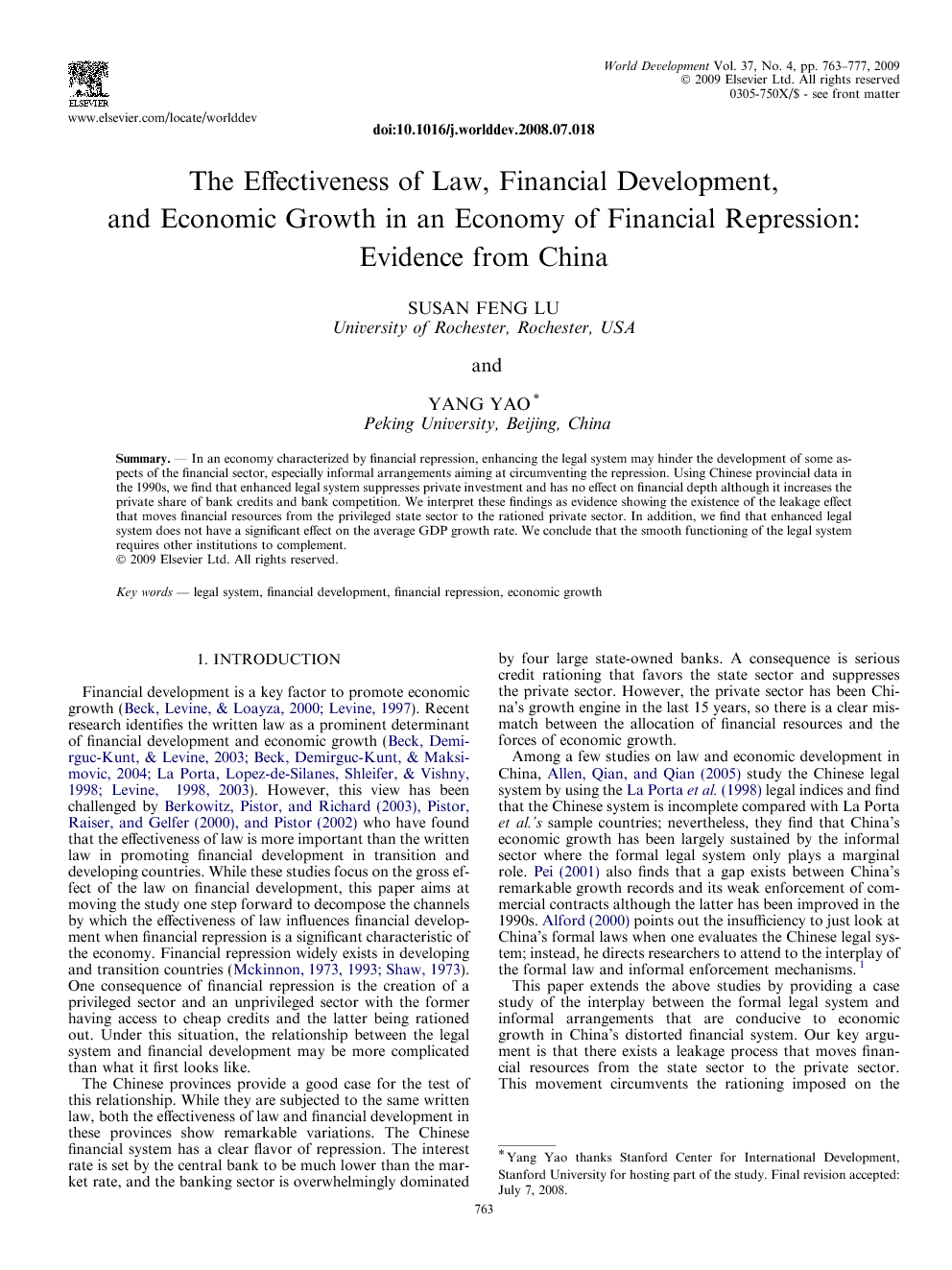ترجمه فارسی عنوان مقاله
اثربخشی قانون، توسعه مالی و رشد اقتصادی در سرکوب مالی اقتصاد : شواهدی از چین
عنوان انگلیسی
The Effectiveness of Law, Financial Development, and Economic Growth in an Economy of Financial Repression: Evidence from China
| کد مقاله | سال انتشار | تعداد صفحات مقاله انگلیسی |
|---|---|---|
| 12507 | 2009 | 15 صفحه PDF |
منبع

Publisher : Elsevier - Science Direct (الزویر - ساینس دایرکت)
Journal : World Development, Volume 37, Issue 4, April 2009, Pages 763–777
ترجمه کلمات کلیدی
نظام حقوقی - توسعه مالی - سرکوب مالی - رشد اقتصادی
کلمات کلیدی انگلیسی
legal system,financial development,financial repression,economic growth

